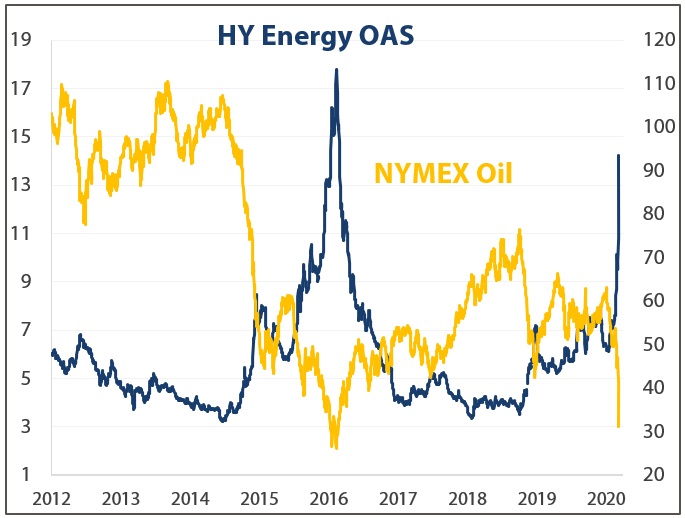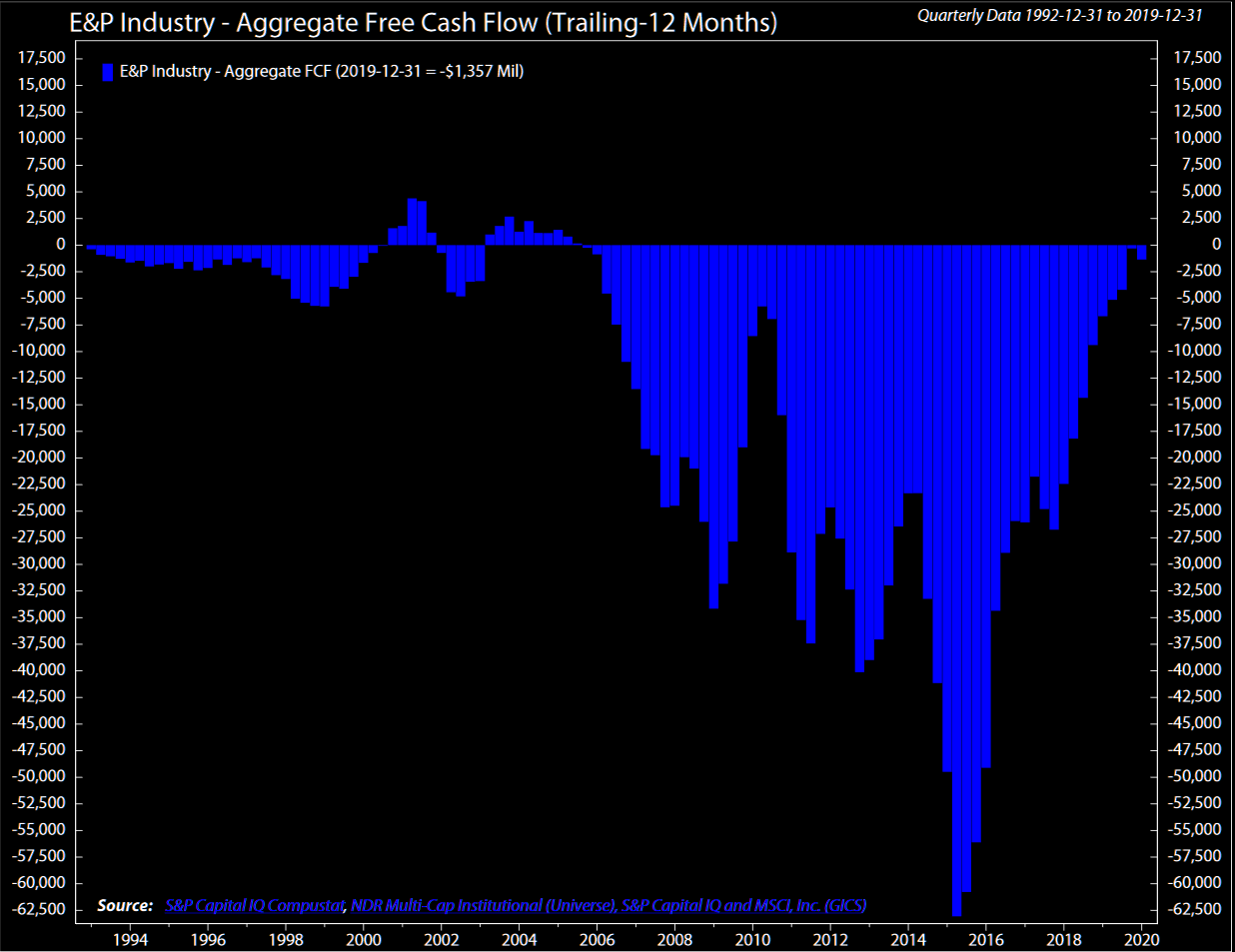
Black Swans Started The Selloff, Now Economic Gravity Will Finish It
Europeans once believed swans were only white. Then they discovered black swans in Australia.
As investors, we continually face events that test our belief systems. Nicholas Nassim Taleb wrote an excellent book on this subject titled, The Black Swan.
‘Black swan’ events are unpredictable and often coincide with major turning points. Recently, a pair of black swans converged, sparking a market riot. As of Monday’s market close, the S&P 500 traded down 18% from its all-time high in a matter of only 13 days.
Prior to this episode, the fastest selloffs of a similar magnitude were:
- 28 days in 1929
- 31 days in 1998
- 38 days in 1987
So, if you’re having a hard time catching up to things as they’re developing, it’s normal to feel that way. These are abnormal times.
In times like this, it’s easy to become myopic. Our survival instincts kick into gear, which creates a tendency to focus on the very short-term. But even in a volatile climate, correctly diagnosing where the overall trend is going is paramount.
Here I will attempt to deconstruct that for you.
Black Swan #1: The Coronavirus
Only a few weeks ago, the S&P 500 was up 5% for the year and the economy seemed to be humming along. Then the economic outlook was infected by the coronavirus.
Pandemics have always been a potential ‘black swan’ risk to markets. But they’re also infrequent and hard to model. It is now becoming clearer by the day the virus is causing dislocations across multiple industries and commodities.
That brings us to Black Swan #2, which is a direct reflection of Black Swan #1.
Black Swan #2: Oil Armageddon
With COVID-19 causing an unprecedented disruption in global travel, the energy industry faces its biggest demand shock since the financial crisis in 2008.
In response to falling crude oil prices and OPEC’s failure to set new supply constraints, Saudi Arabia responded over the weekend by declaring an ‘oil war.’ Saudi will increase oil production from 9.7 million barrels per day to 10 million, and bump it up to 12 million, if necessary. That poses a major supply shock, at the same time the industry is already reeling from a demand shock.
Now you know why oil prices just fell 20%.
This is particularly bad news for the beleaguered U.S. shale producers, who were already struggling to earn a profit. WTI crude is trading close to $30 a barrel. At that price level, the majority of North American shale wells are unprofitable.
Saudi Arabia's decision to flood the market is reminiscent of the 2016 downturn. That year, energy found a bottom in February, after oil fell below $27 a barrel. But the spread on the Bloomberg Barclays High Yield Energy Index shot materially higher, causing bankruptcies.

Source: Bloomberg
Note: nearly $60 billion in energy bonds were already trading at distressed prices in February, and that was before the Saudis decided to crank up supply.
Using the previous episode as a guidepost, high yield energy spreads could widen further, which will likely negatively impact credit spreads across all industries. That means every investor should sanity check their portfolio for companies with balance sheet risk. Now is not a time to own highly leveraged companies or high yield bonds.
Economic Gravity
Gravity governs the natural universe. It brings order to disorder, and makes life here on Earth possible.
In the real economy, the profit motive acts as gravity, and the profit cycle is equivalent to changing seasons.
Some seasons are easier to earn profits in than others. Presently, we are likely entering a period of ‘Macro Winter,’ which I define as an economic regime where the rate of change in growth and inflation both turn negative. In my last post about COVID-19, I wrote about this framework for viewing the economy in more detail.
Something I didn’t mention in the previous post, though, is that winter isn’t all bad. It serves a purpose. Winter cleanses and ultimately strengthens an ecosystem.
When winter arrives in a market cycle, firms hunker down, just like people do when its cold outside. Firms prioritize profits as capital becomes scarce, like people conserve food and firewood.
This has been the longest economic cycle ever. One reason is policymakers tried to create an endless summer, injecting stimulus every time it looked like a contraction was imminent.
Despite these efforts, energy exploration and production firms have generated negative cash flow for a decade.

Meanwhile, almost a third of the firms in the Russell 2000 Index do not presently earn any operating profit. Maybe that explains why small caps are lagging so much?
Astronauts can live in zero gravity, but it’s not good for their long-term health. Gravity matters. Without gravity, muscles begin to atrophy, cardiovascular activity slows, and the immune system falters.
Profit matters, because profit is what organizes the flow of capital to productive uses, and that’s what makes an economy function best. Better productivity creates a higher standard of living.
More QE and a payroll tax will not cure the coronavirus, or fix chronically unprofitable companies. Those companies are where they are, because they are run poorly. Or, perhaps they have a flawed business model. But if markets don’t hold them accountable, nothing changes.
Based on the labor data, we have been late-cycle for a while now. In my view, these two black swan events probably tip the economy into recession.
Recessions are something people fear, but they are normal. And they serve as a down payment on greater economic upside over the long run.
What To Do?
Each investor has their own time horizon and risk constraints to consider, so I’ll keep it high level.
The start of this correction was fast and furious, but where we go from here will likely be a multi-month affair. There will be plenty of twists and turns as economic gravity is being restored. It’s nothing to fear, provided you stick with quality assets and have a long time horizon.
If you’re at a point in life where you’re a net saver, selloffs should be viewed as an opportunity to dollar-cost average your way into some fantastic companies on sale.
What if you think your portfolio is too risky, based on how it has behaved lately? Then use rallies to sell your riskiest positions. Every day provides a fresh opportunity to make good decisions and improve your positioning.
Meanwhile, stay mindful of the hazards of panic selling. Emotions are volatile, but an investor’s risk management process shouldn’t be.
Orginally published by Forbes. Reprinted with permission.
This material is not intended to be relied upon as a forecast, research or investment advice. The opinions expressed are as of the date indicated and may change as subsequent conditions vary. The information and opinions contained in this post are derived from proprietary and nonproprietary sources deemed by Silverlight Asset Management LLC to be reliable, are not necessarily all-inclusive and are not guaranteed as to accuracy. As such, no warranty of accuracy or reliability is given and no responsibility arising in any other way for errors and omissions (including responsibility to any person by reason of negligence) is accepted by Silverlight Asset Management LLC, its officers, employees or agents. This post may contain “forward-looking” information that is not purely historical in nature. Such information may include, among other things, projections and forecasts. There is no guarantee that any of these views will come to pass. Reliance upon information in this post is at the sole discretion of the reader.

